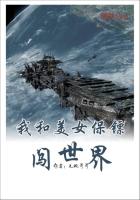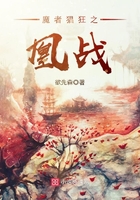“WELL, is she pretty? But, my boy, my pink girl’s charming; her name is Dunyasha.” … But glancing into Rostov’s face, Ilyin paused. He saw his hero and superior officer was absorbed in a very different train of thought.
Rostov looked angrily at Ilyin, and without replying, strode off rapidly to the village.
“I’ll teach them; I’ll pay them out; the scoundrels,” he muttered to himself.
Alpatitch followed Rostov at a quick trot, which he could only just keep from breaking into a run.
“What decision has your honour come to?” he said, overtaking him. Rostov stopped short, and clenching his fists moved suddenly up to Alpatitch with a menacing gesture.
“Decision? What decision, old shuffler?” he shouted. “What have you been thinking about? Eh? The peasants are unruly and you don’t know how to manage them? You’re a traitor yourself. I know you. I’ll flog the skin off the lot of you …” And, as though afraid of wasting the energy of his anger, he left Alpatitch and went quickly ahead. Alpatitch, swallowing his wounded feelings, hurried with a swaying step after Rostov, still giving him the benefit of his reflections on the subject. He said that the peasants were in a very stubborn state, that at the moment it was imprudent to oppositionise them, without an armed force, and would it not be better first to send for armed force.
“I’ll give them armed force. … I’ll oppositionise them …” Nikolay muttered meaninglessly, choking with irrational animal rage and desire to vent that rage on some one. Without considering what he was going to do, unconsciously, he moved with a rapid, resolute step up to the crowd. And the nearer he approached, the more Alpatitch felt that his imprudent action might produce the happiest results. The peasants in the crowd were feeling the same thing as they watched his firm and rapid step and determined, frowning face.
After the hussars had entered the village and Rostov had gone in to see the princess, a certain hesitation and division of opinion had become apparent in the crowd. Some of the peasants began to say that the horsemen were Russians, and it might be expected they would take it amiss that they had not let their young lady go. Dron was of that opinion; but as soon as he expressed it, Karp and others fell upon him.
“How many years have you been fattening on the village?” shouted Karp. “It’s all one to you! You’ll dig up your pot of money and make off with it. What is it to you if our homes are ruined or not?”
“We were told everything was to be in order and no one to leave their homes, and not a thing to be moved away—and that’s all about it!” shouted another.
“It was your son’s turn; but you spared your fat youngster,” a little old man suddenly burst out, pouncing upon Dron, “and sent my Vanka to be shaved for a soldier. Ugh, and yet we all have to die!”
“To be sure, we all have to die!”
“I’m not one to go against the mir,” said Dron.
“Not one to go against it, you have grown fat off it.” …
Two lanky peasants said their say. As soon as Rostov, accompanied by Ilyin, Lavrushka, and Alpatitch approached the crowd, Karp, thrusting his fingers into his sash, walked forward with a slight smile. Dron, on the contrary, retreated to the back, and the crowd huddled closer together.
“Hey! who is elder among you here?” shouted Rostov, walking quickly up to the crowd.
“The elder? What do you want him for? …” asked Karp. But he hardly had time to get the words out when his hat sent flying off his head, and he was sent reeling from a violent blow on the head.
“Caps off, traitors!” shouted Rostov’s full-blooded voice. “Where is the elder?” he roared furiously.
“The elder, the elder’s wanted. Dron Zaharitch, he calls you,” voices were heard saying, hurriedly subservient, and caps were taken off.
“We can’t be said to be unruly; we’re following the orders,” declared Karp. And several voices at the back began at the same instant:
“It’s as the elders settle; there are too many of you giving orders …”
“Talking? … Mutiny! … Scoundrels! Traitors!” Rostov shouted, without thinking, in a voice unlike his own, as he seized Karp by the collar. “Bind him, bind him!” he shouted, though there was no one to bind him but Lavrushka and Alpatitch.
Lavrushka, however, ran up to Karp and seized his arms from behind.
“Shall I call our fellows from below the hill, your honour?” he shouted.
Alpatitch turned to the peasants, calling upon two of them by name to bind Karp. The peasants obediently stepped out of the crowd and began undoing their belts.
“Where’s the village elder?” shouted Rostov.
Dron with a pale and frowning face, stepped out of the crowd.
“Are you the elder? Bind him, Lavrushka,” shouted Rostov, as though the order could meet with no sort of opposition. And in fact two peasants did begin binding Dron, who took off his sash, and gave it them as though to assist in the operation.
“And all of you, listen to me,” Rostov turned to the peasants. “March straight to your homes this minute, and don’t let me hear your voices again.”
“Why, we haven’t done any harm. It was all, do you see, through foolishness. Only a bit of nonsense … I always said that it wasn’t the right thing,” said voices, blaming one another.
“Didn’t I tell you?” said Alpatitch, resuming his rightful position. “You’ve done wrong, lads.”














